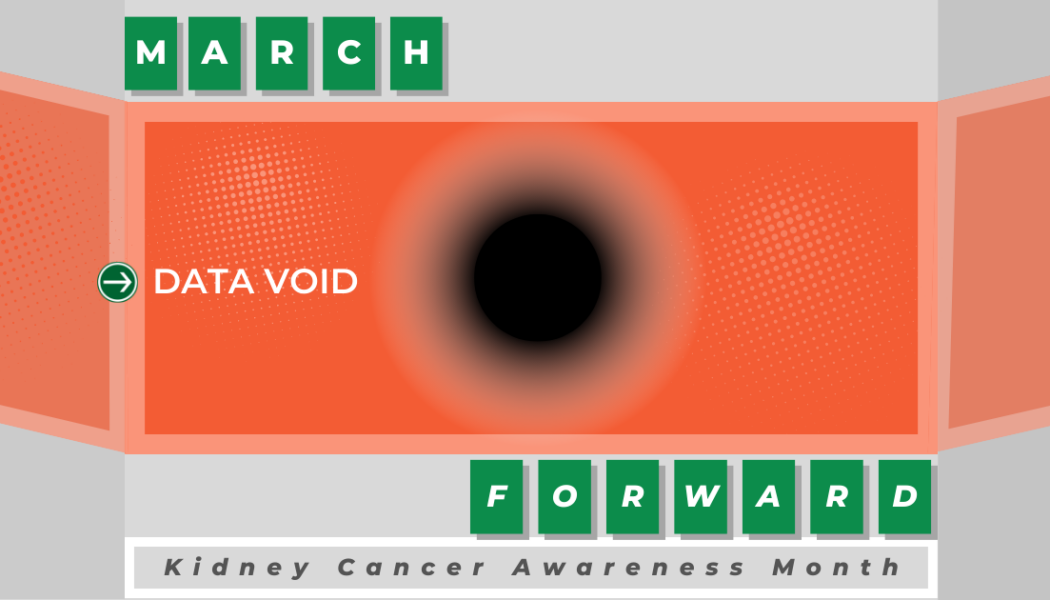A data void exists when there is a high level of demand for information but little information exists. If you or a loved one has been diagnosed with a rare form of kidney cancer – you have entered a “data void.”
Two years ago, you had surgery for a large renal mass. When the pathology came back, “chromophobe renal cell carcinoma,” your doctor told you that you were lucky. Chromophobe renal cell carcinoma (ChRCC) is less aggressive than the most common type, clear cell RCC. It’s rare for ChRCC to recur after surgery.
Ironically, the fact that ChRCC is more indolent reduces the sense of urgency when it comes to research and clinical care. So when you found out that your disease has recurred – you entered a data void. There are seventeen FDA approved drugs to treat renal cell carcinoma. But those drugs are all tested in clear cell RCC. The largest data set that is usually sited for selecting treatment in ChRCC is based on results from 9 patients.
In fairness – even for clear cell RCC patients – it really is unknown whether a select treatment will work for an individual case. But for you – that randomness feels so much more magnified. The “data void” is frustrating. Why aren’t people researching your disease? As everyone celebrates a new drug approval – you feel left out, dismissed.
But you aren’t one to sit back and accept the data void. You are not willing to accept “hand-me-down” drugs from clear cell RCC research. The chromophobe patient community may be small – but when you speak together as one – your voice is loud. Together, you have launched a Chromophobe Research Program – dedicated to increasing research funding, incentivizing new researchers to study this rare kidney cancer and empowering the patient community to come together to promote clinical trial readiness.
Last year, the first research grant ever focused solely on YOUR disease was announced. That research could potentially lead to the first ever ChRCC specific clinical trial. Tomorrow, another ChRCC specific research grant award will be announced. Big changes are happening.
The data void still exists – but not for long.
The KCCure Research Grant Program is designed to give patients a platform to join together and advance research aimed at eliminating data voids. KCCure patient communities are built to give everyone a space to connect with others, receive support and unite together in advocacy. If you or a loved one has been diagnosed with kidney cancer, learn more.









